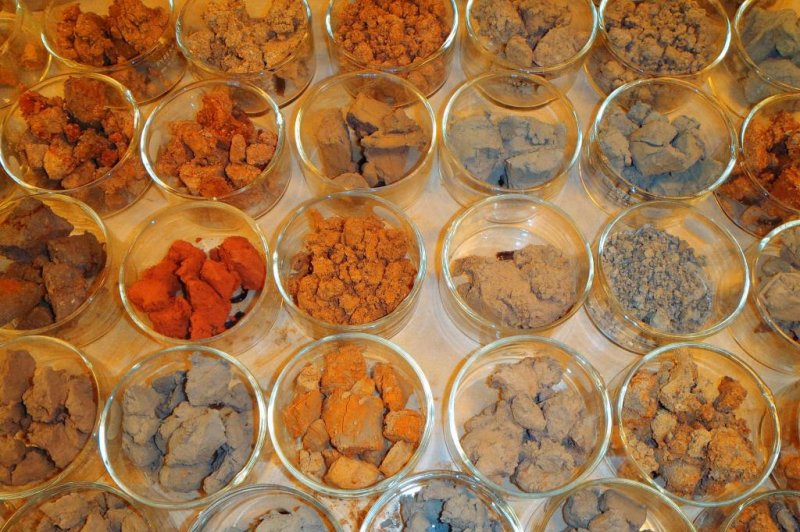Soil samples. Photo by Oregon Department of Transportation/CC.
BOSTON, Jan. 7 (UPI) -- An international team of scientists claim to have created one of the most powerful antibiotic drugs in decades, capable of killing the microorganisms that cause pneumonia, staph, tuberculosis, blood infections and more. And they found it in a pile of dirt.
The new antibiotic, teixobactin, operates differently than previous antibiotics; its power and uniqueness has moved some scientists to suggest germs may never be able to develop resistance to it.
"Our impression is that nature produced a compound that evolved to be free of resistance," explained lead researcher Kim Lewis, a professor at Northeastern University. "This challenges the dogma that we've operated under that bacteria will always develop resistance. Well, maybe not in this case."
While that notion has been dismissed by a number of other researchers who believe that eventually, bacteria will develop a resistance to anything, the new drug still holds great promise in the medical field. Given the growing concerns over resistance to today's common antibiotics, the new discovery has many health researchers, doctors and officials excited.
"It brings back the notion that there are lots of unanticipated surprises still lurking in the soil," Gerald Fink, a microbiologist at the Whitehead Institute at the Massachusetts Institute of Technology, told the MIT Technology Review.
Researchers at MIT, Boston University and Northeastern teamed up with scientists in Germany and England in order to develop the new antibiotic. Most of the world's bacterial resistance strategies are hidden in the dirt, but less than one percent can be recreated in the lab. Researchers have long been looking for a way to utilize the other 99 percent.
Now there is a way to grow uncultured bacteria in their natural environment, thanks to a device called the iChip that was developed by Lewis and his colleague, Northeastern biology professor Slava Epstein. The iChip has allowed scienitsts to grow single cell organisms in their natural environments.
Teixobactin is one of more than two dozen new antibiotics discovered using the technique -- it's also the latest and most promising. Though it is yet to be tested on humans, it has cured a variety of bacterial infections in mice. Lewis told MIT that it may be two years before teixobactin is tested on human volunteers.















